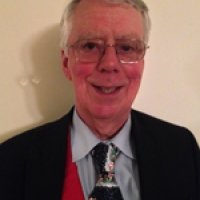The Future of Northern Sudan: An SPLM-North Sudan View
Speakers
H.E. Malik Agar Eyre, Governor of the Blue Nile State, Sudan
H.E. Yasir Said Arman, Secretary General of the SPLM – North Sudan
Michael Van Dusen, Vice President and COO of the Woodrow Wilson Center
Alan Goulty, Senior Fellow and Co-Chair of the Wilson Center's Sudan Working Group
On March 23 the Woodrow Wilson Center's Africa Program hosted a Director's Forum entitled "The Future of Northern Sudan: An SPLM – North Sudan View." The discussants were Malik Agar Eyre, the Governor of the Blue Nile State, and the Secretary General of the SPLM-N, Yasir Said Arman. Eyre and Arman, of the northern wing of the Sudan People's Liberation Movement (SPLM-N), gave insight into the organization's perspective regarding the future of northern Sudan in the wake of the referendum and on the verge of the South's independent on July 9, 2011. Alan Goulty, a Senior Fellow at the Wilson Center and co-Chair of the Sudan Working Group, moderated the event.After opening remarks by the Wilson Center's Executive Vice President and COO, Michael Van Dusen, and an introduction by Alan Goulty, Agar gave a brief background of the SPLM-N. The Sudan People's Liberation Movement (SPLM) is a predominantly southern movement and has been the strongest voice in southern Sudan since 1983. The SPLM has a strong base in northern Sudan, however, and when Sudan is divided into two independent states on July 9, the SPLM will correspondingly be split in two. The two parties, Agar asserted, will continue to have the same objective – that is, a commitment to democracy, human rights and social justice. He went on to say that the SPLM-N's vision of religious and ethnic plurality contradicts and opposes the ruling National Congress Party's (NCP) conception of an Arab, Islamic State.
Agar highlighted a few steps that must be taken in order to ensure that the ‘New North' "accommodates all Sudanese": a heightened reliance on dialogue to promote peace; public consultation in the transitional areas, South Kordofan and Abyei, which are still disputed territories; enhanced security; political arrangements; and the peaceful resolution to the conflict in Darfur.
Give Democracy a Chance
Yasir Said Arman echoed Agar's concerns regarding the significance of establishing a political system that can accommodate the inherent diversity of North Sudan. He emphasized that a balance between Khartoum and North Sudan's various states and regions be maintained, with states and regions exerting a greater influence in the nation's affairs and a "common agenda" at the center. He went on to reiterate that, although the SPLM-N has begun the process of "delinking" itself from the southern faction, their visions and aspirations will remain the same. He pointed out that the populations of the southern part of North Sudan are much like that of the ‘New South,' and if their ethnic diversity is not respected, the stability of the region will be jeopardized. Furthermore, he argued, the NCP should fully incorporate public consultation into its constitution. At present, issues before Khartoum are handled authoritatively, because the NCP does whatever it wishes, without regard or consultation with the Sudanese people. He posited that the NCP's approach to the Darfur conflict would not lead to a durable peace; the NCP is seeking to divide Darfur along ethnic lines. Darfur needs to be governed based on "objective administrative criteria," not ethnicity, he argued. Arman also appealed for the North and South to enter into a "strategic relationship" with each other and reiterated that there must be free and fair elections in South Korodofan and Abyei, so that the people can decide their own future.
Between Washington & Khartoum
In terms of what role the US should play, Arman and Agar both asserted that a normalization of relations between Washington and Khartoum should support the democratic transformation in North Sudan, a new constitution, and lead to a viable state which respects diversity and human rights. The US should also support public consultations to achieve a peaceful resolution of the Darfur conflict without which the stability of the North is unsustainable.During the Q&A session, Arman emphasized that the NCP has to choose between changing itself in order to include Sudanese diversity, or being changed by the SPLM. Agar insisted that the Sudanese people should be free to decide whether they want to be a part of the South or the North. He also mentioned that, "the SPLM-N was trying to do was move away from political Islam. Religion's function should be to reform society, he said, but the moment one uses any religion in politics, problems arise." Moreover, in order to give people an idea about the work that still needs to be done in Sudan, he pointed to the fact that most Sudanese governors are appointed and not elected. Thus, they do not consider the interests of the Sudanese people, but rather of the people who make the appointments. According to Agar, he is the only Sudanese governor who was actually elected in a free and fair election.
Speakers

Former British Ambassador to Sudan and Tunisia
Hosted By

Africa Program
The Africa Program works to address the most critical issues facing Africa and US-Africa relations, build mutually beneficial US-Africa relations, and enhance knowledge and understanding about Africa in the United States. The Program achieves its mission through in-depth research and analyses, public discussion, working groups, and briefings that bring together policymakers, practitioners, and subject matter experts to analyze and offer practical options for tackling key challenges in Africa and in US-Africa relations. Read more
